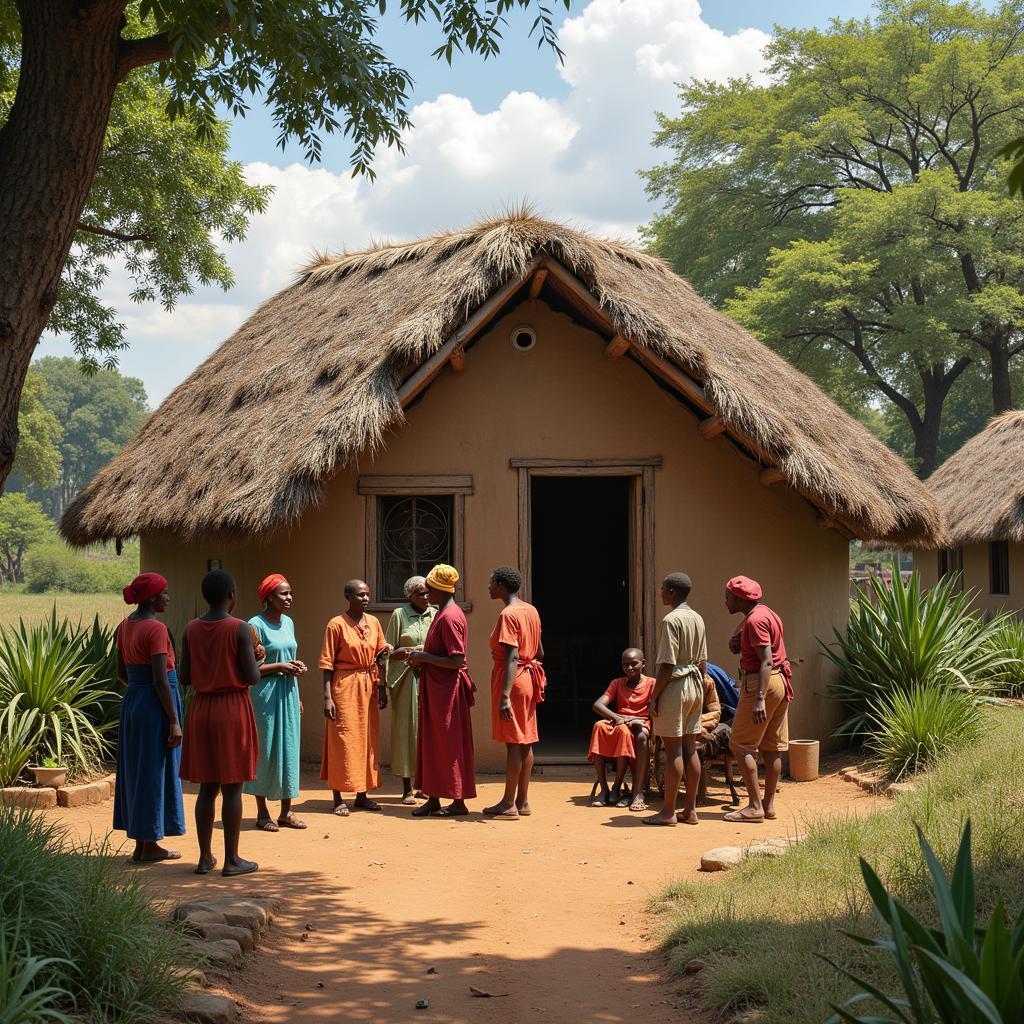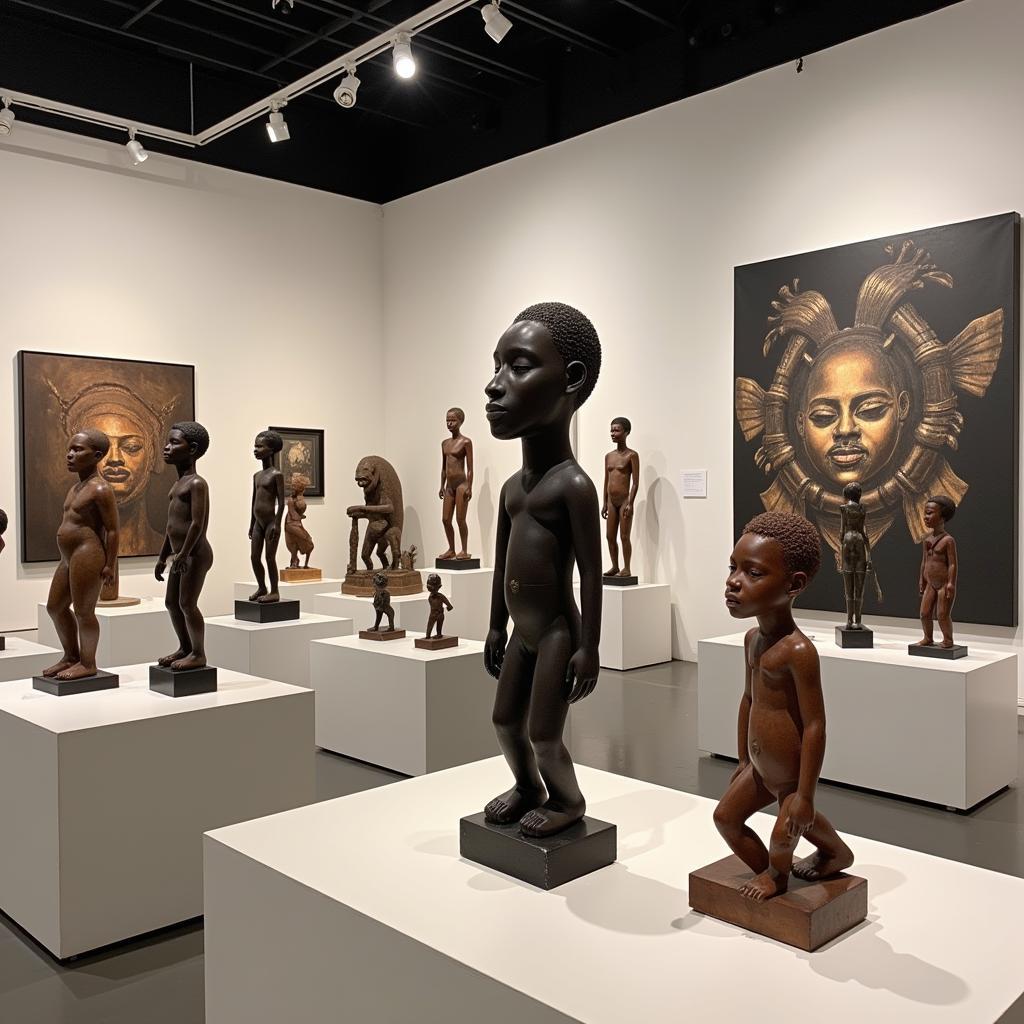Understanding African Country Borders
African Country Borders are a complex tapestry woven from history, colonialism, and geographical realities. These boundaries define not only political territories but also influence cultural interactions, economic relationships, and the very fabric of African societies. Understanding these borders is key to understanding Africa itself. This article delves into the fascinating world of African country borders, exploring their origins, challenges, and significance in shaping the continent’s present and future.
The demarcation of African country borders is largely a legacy of the colonial era. The Berlin Conference of 1884-1885, infamous for its arbitrary division of Africa among European powers, laid the groundwork for many of the boundaries we see today. These lines, drawn with little regard for pre-existing ethnic, linguistic, or cultural divisions, have had lasting consequences. Many of the conflicts and tensions that plague the continent can be traced back to these hastily drawn borders. Furthermore, these divisions disrupted traditional trade routes, separated communities, and created artificial barriers between people who shared common histories and identities.
The Colonial Legacy and African Country Borders
The impact of the Berlin Conference continues to resonate across Africa. The african countries colonized by britain experienced a particular set of challenges related to border demarcation. These arbitrarily drawn lines disregarded the complex web of existing ethnic and tribal territories, often grouping together disparate groups or dividing communities that had long coexisted. This has led to numerous post-colonial conflicts and disputes over land, resources, and political power.
The colonial powers prioritized their own economic and political interests, paying little attention to the long-term consequences of their actions. This has resulted in a complex network of borders that often fail to reflect the cultural and historical realities on the ground.
Post-Independence Challenges and Border Disputes
Following independence, many African nations inherited these problematic borders. While some countries have attempted to renegotiate or adjust their boundaries peacefully, others have faced violent conflicts and disputes. These disputes often stem from competition for resources, particularly in regions rich in minerals or water. Furthermore, the legacy of colonialism has left many countries with weak governance structures, making it difficult to effectively manage border security and control cross-border movements.
The issue of african country that borders botswana and south africa exemplifies the complexity of border issues in Southern Africa. Understanding these borders requires acknowledging the historical context of colonialism and its impact on the region.
The Importance of Cross-Border Cooperation
Despite the challenges, there is a growing recognition of the importance of cross-border cooperation. Many African countries are working together to address shared issues such as trade, security, and environmental protection. Regional organizations like the African Union are playing a crucial role in promoting peaceful resolution of border disputes and fostering greater collaboration between neighboring states. Increased cross-border trade and infrastructure development can contribute significantly to economic growth and regional stability.
Dr. Aisha Abdullahi, a prominent political scientist specializing in African studies, notes, “Cross-border cooperation is essential for addressing the multifaceted challenges facing the continent. By working together, African nations can leverage their collective strength to achieve sustainable development and peace.”
The Future of African Country Borders
The future of African country borders is likely to be shaped by ongoing efforts to promote regional integration and cooperation. While some borders may be adjusted through peaceful negotiations, the focus is increasingly on managing borders more effectively and fostering stronger relationships between neighboring countries. This includes initiatives to improve border security, facilitate trade, and address cross-border environmental challenges.
Professor Kwame Nkrumah, a renowned historian specializing in African border studies, adds, “The arbitrary nature of African borders necessitates a shift in focus from rigid adherence to these lines to fostering greater regional cooperation and integration.”
The african country it borders botswana and south africa serves as a focal point for regional cooperation. These collaborations extend beyond purely geographical concerns, touching upon issues like african hair braiding in japan which highlight the spread of African culture globally, and even the unexpected trade dynamics such as the story of african donkeys china.
Conclusion
African country borders, a complex legacy of colonialism, continue to shape the political, economic, and social landscape of the continent. While these borders present significant challenges, they also offer opportunities for cooperation and integration. By working together to address shared issues and promote peaceful resolution of disputes, African nations can build a brighter future for all. Understanding the history and complexities of African country borders is crucial for anyone seeking to comprehend the continent’s past, present, and future.
FAQ
- What was the Berlin Conference?
- How did colonialism impact African country borders?
- What are some of the major border disputes in Africa?
- What is the role of the African Union in managing border issues?
- How can cross-border cooperation benefit African countries?
- What are some examples of successful cross-border initiatives in Africa?
- How can technology be used to improve border management in Africa?
For further information and assistance regarding African matters, please contact us: Phone: +255768904061, Email: kaka.mag@gmail.com or visit our office at Mbarali DC Mawindi, Kangaga, Tanzania. We have a 24/7 customer service team ready to assist you.



